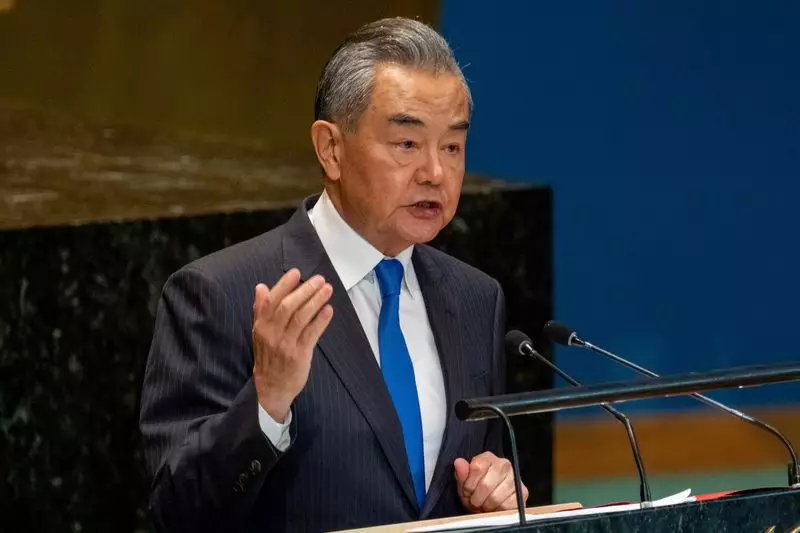As global power dynamics shift, China’s engagement with Africa is increasingly evident. This year marks the continuation of a 35-year diplomatic tradition by Chinese Foreign Minister Wang Yi as he embarks on an annual tour of the continent. With the landscape of international diplomacy in flux—especially with the fluctuating presence of Western countries—China is successfully solidifying its foothold within Africa. This article delves into Wang’s trip to several key African nations and explores the implications of China’s strengthening ties on the continent.
Wang Yi’s journey through Namibia, the Republic of Congo, Chad, and Nigeria serves as a significant reminder of China’s enduring commitment to Africa. As European influence appears to wane and the United States deals with its own political complexities, such as the shifting sentiments surrounding the presidency, China’s consistency provides stability in partnership for many African nations. Analysts emphasize that the countries selected for Wang’s visit highlight China’s strategic focus rather than a knee-jerk reaction to global events. This long-standing commitment contrasts sharply with the ad-hoc approaches that have often characterized Western dealings with the continent.
China’s Economic Strategy
At the core of China’s engagement in Africa lies a well-defined economic agenda. As China faces domestic economic struggles, particularly with the slowdown of its growth rate, it seeks new markets for its products and services. Africa presents abundant opportunities, particularly for Chinese infrastructure firms eager for projects amidst a backdrop of debt-bound local governments hesitant to invest. This visit emphasizes the push for greater financial support to resource-rich nations on the continent, aligning with China’s drive to secure critical minerals and establish market potential for its goods—electric vehicles and solar technology being prime examples.
Wang Yi’s African sojourn further underscores the geopolitical implications of China’s growing influence. The 55 votes held by African nations at the United Nations present an opportunity for Beijing to reshape global norms and advance its vision for international relations, particularly regarding human rights. This deliberate strategy contrasts starkly with Western efforts, which have often lacked the same level of focus and commitment on multilateral platforms. The emphasis on deepening practical cooperation not only strengthens relationships but also grants Africa a crucial role in broader global discussions.
Recent developments in regional security are also influencing China’s engagement strategy. The decision to visit Chad, which has recently lost a key Western ally in France, highlights China’s readiness to step in and address pressing security issues. The need for stability in areas plagued by conflict, such as Central Africa, showcases a rising recognition of China as not just an economic partner but also a potential stabilizing force amidst turmoil. By positioning itself as a reliable partner in security matters, China is further solidifying its role in the continent’s political landscape.
While the United States and Europe grapple with their domestic challenges, which in turn hinder their diplomatic engagements in Africa, China appears unfazed. President Biden’s limited engagements with sub-Saharan Africa contrast sharply with China’s proactive approach, which has positioned it as a primary actor in African policy formulation. The willingness of African leaders to look toward Beijing for inspiration speaks volumes about the perceived benefits of such alliances, particularly concerning manufacturing capabilities and educational advancements.
Wang Yi’s annual trip to Africa is emblematic of a broader strategy for China that is not only economically motivated but is also deeply entrenched in geopolitical ambition. As Africa continues to navigate the complexities of international relations, the diplomatic and economic ties formed with China offer pathways for mutual growth. By ensuring that Africa remains a priority in its diplomatic calendar, China is not only solidifying its influence but also setting itself up as a pivotal partner in the continent’s future endeavors. While the international landscape evolves, the importance of these relationships will likely grow in both economic and political significance.

